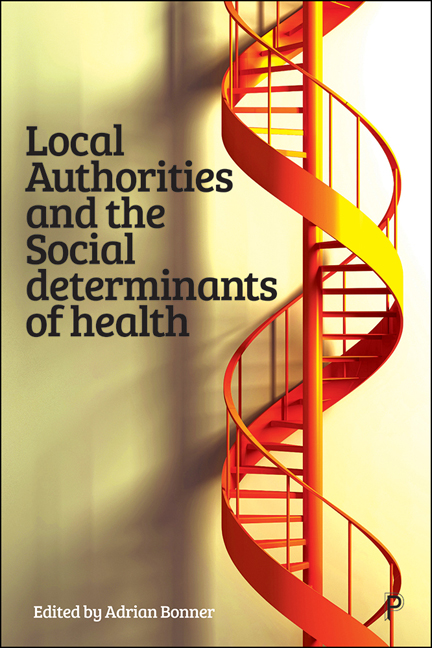Book contents
- Frontmatter
- Dedication
- Contents
- List of Figures, Tables and Boxes
- Notes on Contributors
- Acknowledgements
- Foreword
- Summary
- Introduction: Key Sociopolitical Changes Affecting the Health and Wellbeing of People
- Part I Health, Social Care and Community Wellbeing
- Part II The Role of Local Authorities in Promoting Health and Wellbeing in the Community
- Part III Local Authority Commissioning
- Part IV The Third Sector
- Part V Socio-Economic Political Perspectives
- Conclusion
- Appendix: COVID-19 Timeline
- Index
Conclusion
Published online by Cambridge University Press: 25 March 2021
- Frontmatter
- Dedication
- Contents
- List of Figures, Tables and Boxes
- Notes on Contributors
- Acknowledgements
- Foreword
- Summary
- Introduction: Key Sociopolitical Changes Affecting the Health and Wellbeing of People
- Part I Health, Social Care and Community Wellbeing
- Part II The Role of Local Authorities in Promoting Health and Wellbeing in the Community
- Part III Local Authority Commissioning
- Part IV The Third Sector
- Part V Socio-Economic Political Perspectives
- Conclusion
- Appendix: COVID-19 Timeline
- Index
Summary
The five parts of this book build on ideas developed in the previous volume in the Social Determinants of Health series (Bonner, 2018), which focused on the issues related to health and wellbeing of individuals at the edge of the community.
Throughout the book, various lenses through which local authorities link with central government and with their communities are viewed from the perspectives of health and social care, local authority institutions, social policy and business/management research, the third sector, the private sector and the legal profession. Each of these approaches to understanding the needs of people and enabling them in their local communities has developed over many years.
As noted in Part I, the prolonged attempt to integrate health and social care and to recognise ‘health’ in all services provided by local councils is reviewed. An emerging approach in these multi-agency strategies is to encourage relationships between people and their communities. A report by Nesta (Wood et al, 2016) highlighted improved outcomes for individuals by person- and communitycentred approaches to health and wellbeing, with respect to mental and physical health and wellbeing, National Health Service sustainability and wider social outcomes.
Although public health in the United Kingdom has mainly focused on non-communicable disease in response to modern epidemics of obesity, alcohol-related diseases and the politics of health care, communicative diseases can still have major health, social and economic impacts, as demonstrated by the COVID-19 pandemic, which is rapidly being transmitted across the globe (McKie, 2020). The challenge facing national governments is not restricted to practical issues related to limited diagnostic tools, no vaccines, or treatment, but also includes considerable financial threats to national and global economies. In March 2020, there was a significant drop in investments in world stock markets, on the same scale as the financial crisis of 2008 (Anon, 2020). On 7 May, the Bank of England warned of a historic recession with 3 million Americans filing for jobless claims in the preceding week, a 25% fall in the UK GDP in the January– March quarter, and a possible 14% shrinkage of the UK's GDP in 2020 (Weaden, 2020).
- Type
- Chapter
- Information
- Local Authorities and the Social Determinants of Health , pp. 421 - 426Publisher: Bristol University PressPrint publication year: 2020

